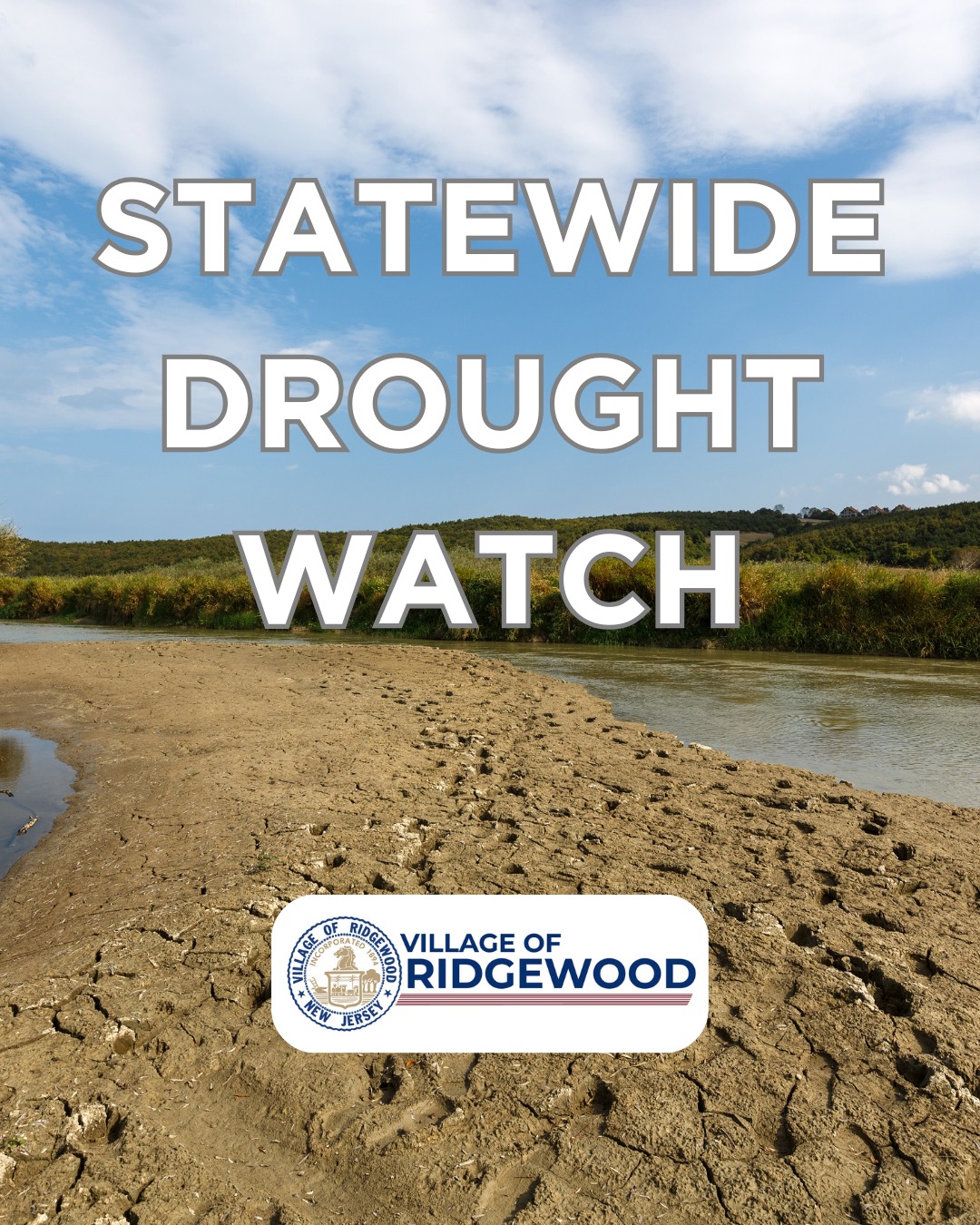
WATER STRESS: NJ Declares Statewide Drought Watch After Extreme Dry Spell—Find Out Which Conservation Steps You Need to Take Immediately
the staff of the Ridgewood blog
TRENTON, NJ – New Jersey is once again grappling with water supply concerns. The Murphy Administration today issued a statewide Drought Watch, strongly urging residents and businesses across the state to immediately practice voluntary water conservation measures.
The declaration comes less than three months after a statewide Drought Warning was lifted, highlighting the “extreme weather variability” New Jersey is experiencing, which officials attribute to a changing climate.
The Cause: Prolonged Dry Conditions and Climate Variability
According to Environmental Protection Commissioner Shawn M. LaTourette, New Jersey’s water supplies are showing “signs of stress again” due after a prolonged dry period in late summer and early fall.
Key indicators showing water stress:
- Precipitation Deficit: Rainfall has been one to six inches below normal across New Jersey over the past 90 days.
- Year-Long Trend: The state has experienced below-average precipitation during ten of the last 12 months while temperatures have remained mostly above average.
- Groundwater Levels: Unconfined groundwater across the entire state is currently rated as Severely Dry.
- Reservoir Levels: Reservoirs in the Northeast and Coastal North regions are now rated as Moderately Dry.
State Climatologist David Robinson noted that the dry late summer and fall, combined with a year of below-normal precipitation, are contributing significantly to these resource concerns.
What a Drought Watch Means for You
The declaration of a Drought Watch is primarily intended to raise public awareness and encourage voluntary conservation. Mandatory restrictions are NOT yet in place.
However, the Drought Watch serves as the first alert level. If conditions do not improve, the state could escalate the status to:
- Drought Warning: Increased restrictions may be implemented.
- Drought Emergency: Mandatory water use restrictions become necessary.
The Department of Environmental Protection (DEP) is currently monitoring all key drought indicators, including stream flows, reservoir levels, groundwater, and water demand, and will continue to update the public.
Fall Water Conservation Tips
While intensive outdoor water use typically decreases in the fall, every drop saved helps. The DEP recommends the following common-sense measures:
- Delay Intensive Irrigation: Hold off on activities like lawn reseeding until conditions significantly improve. Adjust automated sprinkler systems accordingly, as plants naturally require less water this time of year.
- Indoor Conservation: Focus on reducing indoor water use, such as taking shorter showers and only running dishwashers and washing machines when full.
- Wash Cars Efficiently: Residents are encouraged to use commercial car washes, as these businesses typically recycle and use water more efficiently than washing a vehicle at home.
New Jersey experienced a Drought Warning as recently as late 2024, emphasizing the urgency of proactive conservation now to avoid mandatory restrictions later this year.
Tell your story #TheRidgewoodblog , #Indpendentnews, #information, #advertise, #guestpost, #affiliatemarketing,#NorthJersey, #NJ , #News, #localnews, #bergencounty, #sponsoredpost, #SponsoredContent, #contentplacement , #linkplacement, Email: Onlyonesmallvoice@gmail.com
